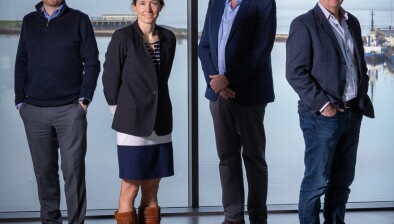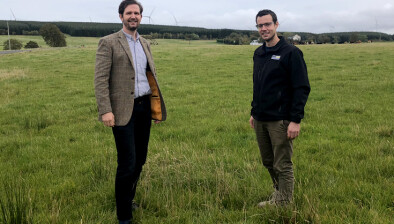‘First-of-a-kind’ £111m recycling and waste plant planned for South Lanarkshire
 The UK’s Green Investment Bank (GIB) has announced plans to co-fund an £111 million recycling and waste-to-energy plant in South Lanarkshire.
The UK’s Green Investment Bank (GIB) has announced plans to co-fund an £111 million recycling and waste-to-energy plant in South Lanarkshire.
The government-funded bank said it had invested more than £28m in the new facility at Forth by Lanark, due to open in 2017.
Developers say the energy-from-waste plant, and adjacent recycling facility, will recycle more than a million tonnes of materials and save around 1.3 million tonnes of Co2 emissions, as well as producing enough electricity to supply the equivalent of almost 18,000 homes over its lifetime.
The project will be the first time a UK plant has combined fluidised bed gasification technology with Refuse Derived Fuel (RDF), processed by the adjacent Materials Recycling Facility (MRF).
The MRF will recover plastics, metals, paper and card for recycling. The project is forecast to recycle over a million tonnes of materials over its lifetime and will generate the heat required by the MRF.
The development is also forecast to supply electricity equivalent to the needs of nearly 18,000 homes over its expected 25-year lifespan. It is also expected to save 1.4 million tonnes of waste from going into landfill and deliver a reduction in greenhouse gas emissions of around 1.3 million tonnes, equivalent to taking over 23,000 cars off the road for every year it operates.
The electricity will be supplied to the national grid with the heat output assisting the operation of the MRF. It will create more than 100 jobs during the construction phase and support 50 full-time jobs when complete.
The MRF is expected to become operational in January 2017, with the complete plant commencing operations in June of that year. Given its location near the centre of the M8 corridor, the facility will be well placed to process household waste from several local authorities and commercial waste from the Glasgow and Edinburgh regions.
M+W Group has been appointed main (EPC) contractor for the project.
GIB chief executive Shaun Kingsbury said: “This first-of-kind project is the latest example of how the UK is modernising its waste management infrastructure. By increasing recycling and using the remaining waste to produce energy, the Levenseat project will make a significant contribution towards Scotland’s ‘zero waste plan’.”














